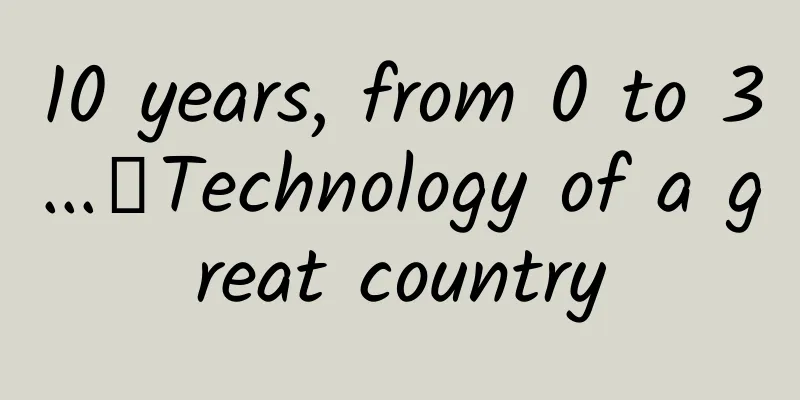Do women have a poor sense of direction? In this place, they have a better sense of direction than men

|
Photo/Hao Yanfang Peking Union Medical College Hospital Reviewer/Yu Qi, Professor of Peking Union Medical College Hospital Have you noticed that in life, many women seem to have a poor sense of direction. Not only are they easily lost, they can't even tell the directions of east, south, west and north. Some people think this is "cuteness", while others think it is "stupidity". But in fact, women's poor sense of direction is caused by many factors. Androgens are the compass in the human body Figure 1 Copyright image, no permission to reprint Research has found that the reason why men have a strong sense of direction may be related to male hunting in ancient times. It is generally believed that the division of labor in human society in ancient times was "men are responsible for the outside world, women are responsible for the inside world", with men mainly responsible for hunting and women mainly responsible for gathering. However, prey will not wait to be caught in a specific place, so men need to travel a long distance to successfully hunt for food. Without a keen sense of direction and distance, men may not be able to find their way home. Therefore, some scholars believe that ancient men with a "good sense of direction" are more likely to survive and will pass on genes that are beneficial to the "sense of direction" to their offspring. In the long run, men's "good sense of direction" has been retained as an evolutionary advantage. In modern times, humans no longer need to rely on hunting to survive, but the sense of direction is still retained in their genes and has not been eliminated during the evolution process. A study conducted jointly by the University of Illinois, the University of Wisconsin, and the University of California, Riverside, in the United States believes that humans did not deliberately choose to retain a sense of direction during their evolution, but rather retained another substance that was necessary for evolution, and it was that substance that affected the strength of the sense of direction. Professor Justin Rhodes pointed out that this substance should be androgen. Experiments have shown that when women supplement with a certain amount of androgen, their ability to find their way will be greatly improved. Therefore, it is believed that androgen is the compass in the human body [1]. How the brains of men and women work differently Figure 2 Copyright image, no permission to reprint In addition to androgens affecting sense of direction, the areas of the brain that work in men and women when distinguishing directions are also different. There is a saying that men focus more on using the left brain in life, while women focus more on using the right brain in life. The functions of the left and right brains of human beings are different. The left brain allows us to analyze problems more rationally and have a certain three-dimensional reproduction ability of the space we belong to; while the right brain is responsible for giving us strong curiosity and strong creativity. Therefore, the male brain has a stronger spatial and directional cognition ability, so men have a stronger sense of direction than women. Scientists from the Norwegian University of Science and Technology once invited 18 men and 18 women to participate in an experiment. In the experiment, the researchers asked the volunteers to find certain objects in a virtual space. While the volunteers were completing the task, the researchers monitored the volunteers' brain activity. The results showed that when completing the task, there were differences in the parts of the brain that worked between men and women. Men used the hippocampus more, while women used the prefrontal cortex more[2]. Since the hippocampus is mainly responsible for the storage, conversion and orientation of short-term memory, while the prefrontal cortex is associated with attention, cognition and action, and has cognitive and practical functions such as thinking and reasoning, as well as the function of controlling emotions, this also causes women to have more anxiety and irritability when they get lost. Women have a better sense of direction indoors than men Figure 3 Copyright image, no permission to reprint Soon, some scholars discovered that most of the experiments on the "sense of direction" of men and women chose measurement indicators that were superior to men, such as mental rotation (referring to the psychological process of rotating the perceived object by mental operation alone to obtain correct perceptual experience, which is an important yardstick for assessing spatial intelligence), direction judgment, distance estimation, etc., and the task backgrounds were mostly virtual environments or real neutral environments, such as university campuses and communities. Therefore, some people questioned whether such experiments could really reflect the differences in spatial ability between men and women in real life? Therefore, the researchers combined the spatial ability test indicators with daily activities and asked the same number of male and female volunteers to conduct a "sense of direction" test in two specific environments: shopping malls and squares. The results showed that women have a stronger sense of direction in shopping malls, but it becomes worse in squares. Researchers say that there is an invisible spatial map in men's brains, which they can use to determine which direction to go. Men have a stronger sense of direction outdoors. Women, on the other hand, prefer to refer to physical objects they can see and judge their location by recognizing real scenes. Women have a stronger sense of direction indoors[3]. Conclusion Due to the differences in how men and women use their brains and think, it seems that women's sense of direction is slightly worse than men's. However, in real life, women do not necessarily have to distinguish between east, south, west and north when they go out. They can rely on fixed objects to identify the route and convert map-style instructions into images. This method is more in line with women's habit of identifying directions and will make it easier for women to find directions. In this way, women's sense of direction is not bad, and it can be very strong if the right method is used. References: [1] Gu Fangwei. Why men have a stronger sense of direction. Medicine and Health Care, 2013, 21(4): 24. [2] Men’s sense of direction is better than women’s, which is related to physiological factors. Health Expo, 2016(4):9. [3] Zhao Mengya. Are women really directionally challenged? A comparison of gender differences in multiple spatial tasks in shopping malls and office buildings. Nanjing: Nanjing University, 2016. |
<<: Trivia about how the ancients repelled mosquitoes
>>: Vanguards descend from the sky: airborne troops to safeguard national security
Recommend
How to efficiently learn and master new technologies
[[149369]] Recently, I have learned and practiced...
Detail page copywriting template with conversion rate over 85%!
Copywriting has always been a very popular job : ...
A complete guide to promoting ToB products
01. Introduction " Product Promotion " ...
Apple executives: Explaining the key issues of the Xcode incident
Phil Schiller, Apple's senior vice president ...
Dialogue with SuperD President: It is too stupid to wear 3D glasses to watch movies on mobile phones
There are many people who like 3D movies, but the...
Hongmeng OS internal test system experience exposed: the interface is obviously different from EMUI, simple and smooth
Last week, there was news that Hongmeng OS is bei...
Making a "super CT" for space: revealing the secrets of a world-class space weather "forecast station"
Today, let's learn about the Meridian Project...
Does it take 15 days for the test result to turn negative to produce antibodies? Experts respond!
It is said online that it takes 15 days for antib...
How to solve the problem of overuse of antibiotics? We want to find an alternative
Produced by: Science Popularization China Author:...
Elements and channels of online product promotion plan!
Viewpoint 1 The general promotion process is as f...
Don’t want to drink milk? Try these “milk substitutes” →
For most people of this generation, the main sour...
I put the light into a bag during the day, and opened it at night. Why is it gone? Where did it go?
This is a common sense question that has been dis...
Obesity diagnosis and treatment now has a "national version of the guide"! 7 kinds of diet plans, see which one is right for you
On October 17, the National Health Commission iss...
Thyroid cancer is becoming more and more common. What should you eat after surgery?
The thyroid gland is the largest endocrine organ ...









